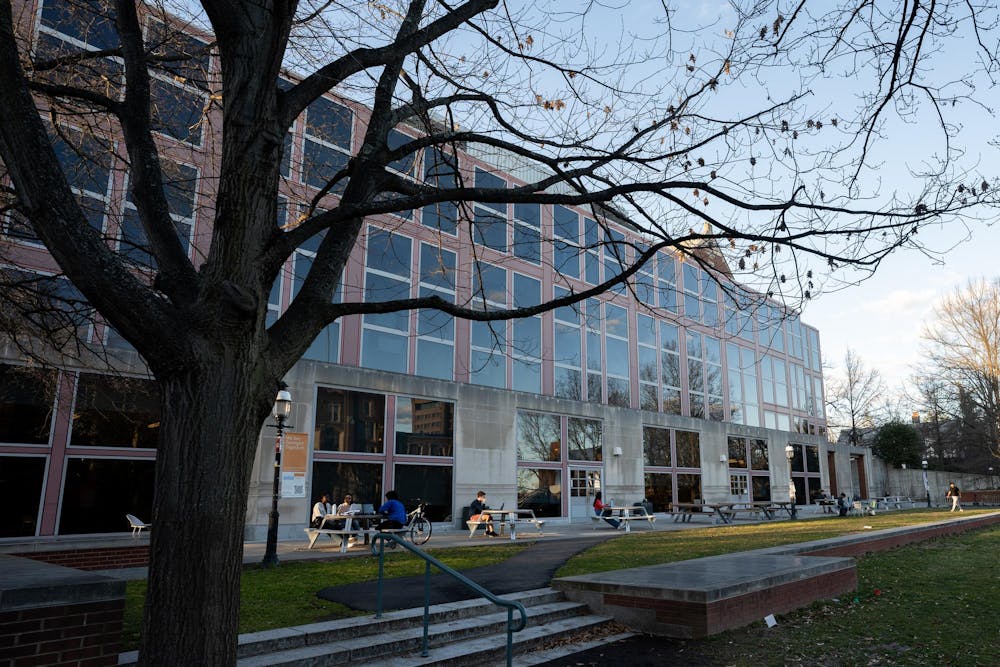The Undergraduate Student Government (USG) announced the results for a contested U-Councilor and class government election via an email to the student body on Friday, April 19. Voter turnout was significantly higher for class council elections than for the U-Councilor race.
This year was the first contested U-Council election since 2019, which comes following a targeted effort by the USG to increase interest in the position.
In a USG meeting in March, Senator Samuel Kligman ’26, presenting on behalf of the elections working group, said, “Our spring goal for the election working group is to increase 2024 election turnout by finally having contested U-Councilor elections.” Specific policies Kligman mentioned included a U-Councilor info session, reaching out to unsuccessful candidates from previous elections, and increasing communications about election logistics.
Chief Elections Manager Alex Sorgini ’26 told The Daily Princetonian that 1,710 students cast votes in the U-Councilor election — just 31 percent of eligible voters. Each of the 12 candidates received between seven and 10 percent of votes cast.
Aishwarya Swamidurai ’26, Aly Rashid ’26, Anuj Krishnan ’27, Chloe Long ’26, Daniel Shaw ’25, Ila Prabhuram ’27, Jaden Stewart ’26, Luqmaan Bamba ’27, Roberto Lachner ’26 and Samiksha Gaherwar ’26 were all announced as U-Councilors.
Of the 10 U-Councilor-elects, Rashid, Stewart, and Bamba are all newcomers to the role, while the other seven had previously served as U-Councilors.
“I think this was the ideal result in the sense that we have people with experience coming into USG — some with more than a year of experience, which is great,” Kligman said in an interview with the ‘Prince.’ “At the same time, we’re bringing in newcomers with fresh ideas … I think we struck a very good balance there.”

Per the USG Senate constitution, U-Councilors are Senate members who also serve as members of the Council of the Princeton University Community (CPUC). The CPUC, per its website, is “a permanent conference of the representatives of all major groups of the University” where “they could each raise problems that concern them and … be exposed to each other’s views.”
Incumbent U-Councilors Judah Guggenheim ’25 and Leyton Watts ’26 were not reelected. Neither of the two had been originally chosen for their positions in contested elections, with Guggenheim appointed in 2022 and Watts winning an uncontested election last spring.
Additionally, Kligman felt that Sorgini’s efforts to reach out to students who had run previously proved successful. Bamba, Rashid, and Gaherwar had all previously run for class senator positions.
Kligman also noted that USG plans to continue releasing consolidated guides for potential candidates.

The following officers were announced for class governments:
Class of 2027 Officers
President: D’Schon Leon Simmons
Treasurer: Allie Ebanks
Secretary: Nnamdi Udeogu
Class of 2026 Officers
President: Minna Abdella
Social Chair: Aarushi Adlakha
Class of 2025 Officers
President: Ben Wachspress
All other class officer positions were uncontested. Although the original candidate registration deadline was April 2, USG extended the deadline for uncontested positions to April 7, proclaiming in an April 4 newsletter that “there is still an opportunity to run as a candidate in the Spring 2024 election cycle for the following currently uncontested Class Government positions.” This call for candidates resulted in one uncontested race becoming contested — Class of 2027 Secretary.
The Class of 2025 presidential election was close, with Wachspress, former Social Chair for the Class of 2025, winning against Gil Joseph ’25, the incumbent. Wachspress received 52 percent of votes and Joseph received 48 percent. No other rising senior class has had a contested presidential election in the time that the Class of 2025 has been on campus.
In an interview with the ‘Prince,’ Wachspress discussed his campaign strategy, which included using social media to upload “Ben on the Street” videos, which he said were inspired by comedy game show “Billy on the Street.” Wachspress also distributed stickers with slogans like “WachsPrez.”
“My campaign idea was just engage and involve as many people as possible,” Wachspress said, adding that some of his strategies “maybe were not as conventional for campaigns but just made people excited, especially people who might not have voted in other elections.”
“I enjoyed every moment I spent leading class government these past two years,” Joseph wrote in a statement to the ‘Prince,” adding, “I am proud of the impact I had working with a brilliant team and I know Ben will do a great job closing off next year.”
Newcomer Fletcher Block ’25 ran unopposed to fill the Social Chair seat.
The first-year class council election saw significantly greater participation compared to the older classes. Voter turnout for the 2027, 2026, and 2025 class officer positions reached 56 percent, 45 percent, and 46 percent, respectively, according to Sorgini. Relative to the Class of 2025 election, election results for 2026 and 2027 class council were not particularly close.
No referenda appeared on the ballot this spring.
Nandini Krishnan is a senior News writer for the ‘Prince.’
Annie Rupertus is a head News editor for the ‘Prince’ from Philadelphia who often covers activism and campus governance.
Thomas Catalano and Alena Zhang contributed reporting.
Please send corrections to corrections[at]dailyprincetonian.com.








